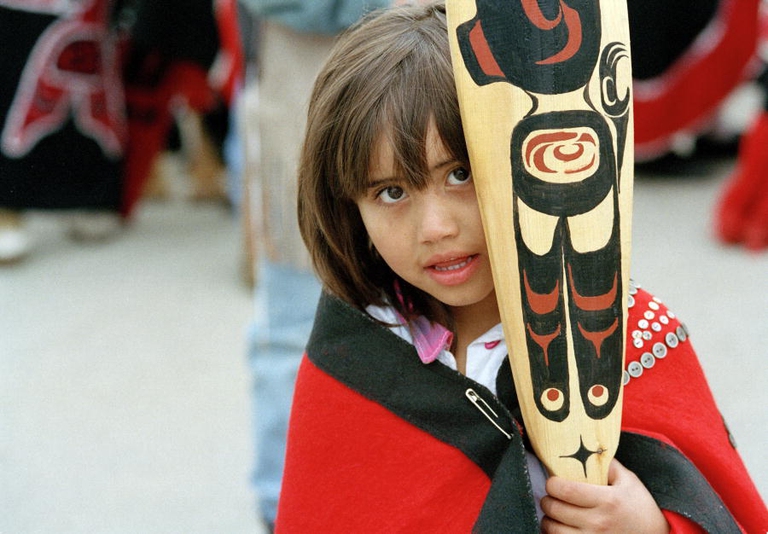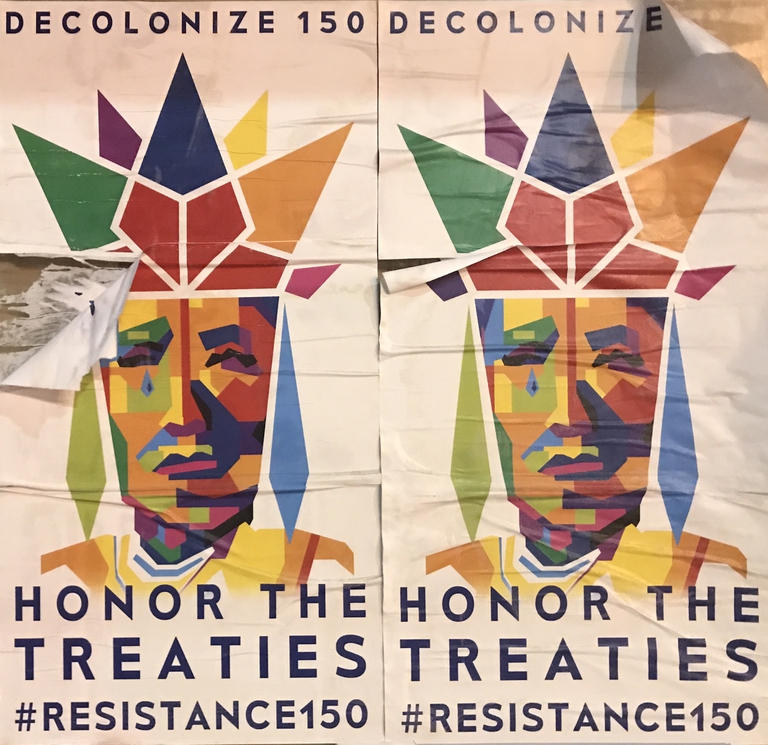
A special report from the Yuqui territory delves deep into the dreams, challenges, joys and sadness of one of Bolivia’s most vulnerable indigenous groups.
N’we Jinan is a Canadian record label that gives First Nations students their voice back by allowing them to create their own music in mobile recording studios.
N’we Jinan is a nonprofit organisation based in Montreal, Canada, founded by hip hop producer and youth worker David Hodges and Joshua Iserhoff, former Youth Grand Chief of the Cree Nation Youth Council, a youth leadership position. By bringing mobile record studios into schools, N’we Jinan offers aspiring indigenous or First Nations artists a space for creative expression. It also fosters indigenous empowerment and social cohesion in communities. “It means a lot to me – Lamb, a Grade 10 student, said in an interview –, I’m happy that this school is willing to go through all the struggles that they’ve had in the past and just keep the culture going”.
The project began in 2014, when N’we Jinan travelled to ten First Nations communities across the province of Quebec. The tournée brought to life new artists, music and inspiration. As the group reached over 100,000 reproductions on their official Sound Cloud page, it was time to launch the album. In May 2014, the album – comprising 19 original songs that saw the participation of over 70 aspiring young artists – became the number one hit in the Canadian iTunes hip hop charts.
Overall, the N’we Jinan tour has reached over twenty First Nations communities, and more than 300 youths across North America have participated in the programme.
Suicide and self-inflicted injury are the leading causes of death among First Nations people under the age of 44, and studies reveal that indigenous youth in Canada are five to six times more likely to commit suicide than non-indigenous youth. This hit the headlines in 2016 after three native communities declared a state of emergency in response to this terrible trend. In one of them, the Attawapiskat First Nation reserve, eleven young people attempted to kill themselves in one night alone.
For First Nations youth, creating music is thus a channel to address deep-seated problems and the culture of silence surrounding them.
“There’s been a lot of tragedy in the community in the past with suicide, murder, so I thought it was important for them to share some of their story,” Patsy Grey Eyes, Blueberry River First Nation education manager, commented the decision to undertake a project with N’we Jinan. Through music, students get the chance to speak up, breaking down taboos. “We’ve had a few suicides. It’s been very hard on our community, very tough losses,” 16-year-old Tichia Davis, one of the singers, shared.
The stress of assimilating to a different culture, intergenerational trauma and the overall marginalisation that First Nations peoples continue to experience stem largely from the colonisation period and the government’s past efforts to force their assimilation into dominant society. The legacy of such policies is still reflected in major educational, income and healthcare inequalities between indigenous and non-indigenous Canadians. Consequently, the image of Aboriginal peoples as poorer, less educated and troubled perpetrates attitudes of hostility and racism.
Many point to the residential schools system as the main source of trauma. Operating from the 1880s until the 1990s, residential schools removed indigenous children from their families with the objective of eradicating their culture and assimilating them into that of Canadians of European descent. Children attending residential schools were banned from speaking their first language or wearing traditional clothes. They suffered physical, emotional and sexual abuse. More than 150,000 First Nation, Métis and Inuit children went through this experience, according to official estimates.
In recent years, several attempts of reconciling with past abuse have been made. In 2007, the government of Canada signed the Indian Residential Schools Settlement Agreement, fruit of the largest class action settlement in the country’s history. In the agreement the government recognised the damaging impact of residential schools and allocated 1.9 billion Canadian dollars to all former residential school students and additional funds to resolve claims of sexual, physical and psychological abuse. The following year residential school survivors received a formal apology from then Prime Minister Stephen Harper, and witnessed the creation of the Truth and Reconciliation Commission (TRC). After several years of research, the TRC published a multi-volume report in 2015 that documents the cultural genocide carried out in residential schools.
They took our land, but not traditions and cultureThere is a struggle, but it’s making us stronger
Do you see who we are?
There’s spirit in our hearts
The future seems so far, but our time is now
We sing, why us?Tachie of the Tl'azt'en Nation in British Columbia – Why us
But while these initiatives are important steps on the road to decolonising Canadian society, they aren’t enough to fully address the impact of abuse on indigenous citizens. This is why N’we Jinan empowers young artists to be at the forefront of this movement. And by listening we should learn.
Siamo anche su WhatsApp. Segui il canale ufficiale LifeGate per restare aggiornata, aggiornato sulle ultime notizie e sulle nostre attività.
![]()
Quest'opera è distribuita con Licenza Creative Commons Attribuzione - Non commerciale - Non opere derivate 4.0 Internazionale.
A special report from the Yuqui territory delves deep into the dreams, challenges, joys and sadness of one of Bolivia’s most vulnerable indigenous groups.
The Yuqui people of the Bolivian Amazon fight not only to survive in the face of settlers, logging and Covid-19, but to preserve their culture and identity.
Jair Bolsonaro is accused of crimes against humanity for persecuting indigenous Brazilians and destroying the Amazon. We speak to William Bourdon and Charly Salkazanov, the lawyers bringing the case before the ICC.
Activists hail the decision not to hold the 2023 World Anthropology Congress at a controversial Indian school for tribal children as originally planned.
Autumn Peltier is a water defender who began her fight for indigenous Canadians’ right to clean drinking water when she was only eight years old.
The pandemic threatens some of the world’s most endangered indigenous peoples, such as the Great Andamanese of the Andaman and Nicobar Islands in India.
The Upopoy National Ainu Museum has finally opened. With it the indigenous people of Hokkaido are gaining recognition but not access to fundamental rights.
A video shows the violent arrest of indigenous Chief Allan Adam, who was beaten by two Royal Canadian Mounted Police (RCMP) officers.








